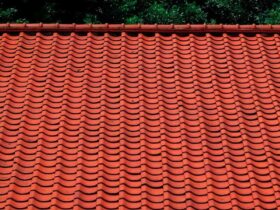Paving a driveway costs an average of $3 to $12 per square foot. The total cost depends on the size and material used.
The cost to pave a driveway can range from $2,000 to $10,000 for a standard residential driveway. Factors such as material, labor, and additional features can influence the final cost. It’s important to consider these factors when budgeting for a new driveway.
When it comes to enhancing your home’s curb appeal and functionality, a well-paved driveway can make a significant difference. Whether it’s asphalt, concrete, or pavers, the material and size of your driveway will impact the overall cost. Understanding the pricing factors and options available can help you make an informed decision when investing in a new driveway.
Initial Considerations For Driveway Paving
When considering paving a driveway, there are several important factors to take into account. From the choice of material to permits and regulations, each decision can significantly impact the overall cost and outcome. Understanding these initial considerations is essential for a successful driveway paving project.
Factors Influencing Choice Of Material
The choice of material for paving a driveway is a crucial decision that can affect the aesthetics, durability, and cost of the project.
- Durability: Different materials have varying degrees of durability, which can impact the longevity of the driveway.
- Aesthetics: The visual appeal of the driveway is influenced by the color, texture, and pattern of the chosen material.
- Maintenance: Some materials require more maintenance than others, affecting long-term upkeep costs.
- Cost: The initial and long-term costs of materials can vary significantly, influencing the overall budget for the project.
Permits And Regulations
Before embarking on a driveway paving project, it’s crucial to understand the permits and regulations that may apply to your area.
- Local Regulations: Different municipalities have specific regulations governing driveway construction, including setback requirements, drainage considerations, and material restrictions.
- Permit Requirements: Depending on the scope of the project, you may need to obtain permits from local authorities, which can add to the overall cost and timeline.
- Environmental Impact: Some areas have regulations aimed at minimizing the environmental impact of driveway construction, such as permeable paving requirements.

Credit: www.angi.com
Cost Comparison Of Driveway Materials
Pricing a driveway paving project depends on the material. Gravel is the cheapest, while concrete and resin are the most expensive options. Asphalt is generally more affordable than concrete due to lower installation costs. Consider the long-term maintenance and durability when comparing costs for driveway materials.
If you’re considering paving your driveway, it’s important to understand the different materials available and their respective costs. The three most common driveway materials are asphalt, concrete, and gravel. In this section, we’ll compare the costs of these materials to help you make an informed decision.
Asphalt Vs. Concrete
Asphalt and concrete are two of the most popular driveway materials, and each has its pros and cons. Asphalt is generally less expensive to install than concrete, with an average cost of $2 to $5 per square foot. Concrete, on the other hand, costs between $3 and $10 per square foot. However, concrete is more durable and requires less maintenance than asphalt, making it a better long-term investment.
Gravel And Other Alternatives
If cost is your primary concern, gravel is the cheapest option for paving a driveway. The average cost of gravel is $0.50 to $2 per square foot, making it significantly less expensive than asphalt or concrete. However, gravel is not as durable as other materials and requires regular maintenance.
Other alternatives to consider include pavers, which offer a wide range of design options but can be expensive to install, and resin driveways, which are a relatively new option that combines resin with aggregate to create a durable surface.
When choosing a driveway material, it’s important to consider not only the initial cost but also the long-term maintenance and durability of the material. By comparing the costs and benefits of each option, you can choose the material that best meets your needs and budget.
Calculating The Costs: What To Expect
Paving a driveway cost depends on various factors such as materials, size, and labor. Gravel is the cheapest option, while asphalt is generally more affordable than concrete. It’s important to consider long-term maintenance and durability when estimating the overall expenses for paving a driveway.
Average Pricing Structures
When it comes to paving a driveway, it’s important to have a clear understanding of the costs involved. The average pricing structures for paving a driveway can vary depending on several factors. These factors include the size of the driveway, the materials used, and the complexity of the project.
To give you an idea of what to expect, let’s break down the average pricing structures for driveway paving:
1. Gravel: Gravel is the cheapest option for paving a driveway. It costs very little to have installed and is a popular choice for homeowners on a tight budget.
2. Asphalt: Asphalt is generally more affordable than other paving options. It requires less labor and fewer components, making it a cost-effective choice for many homeowners.
3. Concrete: Concrete driveways tend to be more expensive than asphalt or gravel. The materials and labor required for concrete paving can drive up the overall cost.
4. Resin: Resin driveways are a premium option and come with a higher price tag. The unique properties of resin make it a durable and long-lasting choice, but it does come at a higher cost.
Additional Expenses
In addition to the base cost of the materials and labor, there are several additional expenses to consider when calculating the total cost of paving a driveway. These expenses include:
1. Excavation: If your driveway requires excavation or grading work, this can add to the overall cost. The amount of excavation needed will depend on the condition of your existing driveway and the desired depth of the new pavement.
2. Drainage: Proper drainage is essential for a well-functioning driveway. If your property lacks adequate drainage, you may need to install additional drainage systems, such as French drains or catch basins, which can increase the overall cost.
3. Permits: Depending on your location, you may need to obtain permits or pay fees before starting your driveway paving project. It’s important to check with your local government to ensure compliance with any regulations.
4. Add-ons: If you want to enhance the aesthetics or functionality of your driveway, there may be additional costs for add-ons such as decorative borders, stamped patterns, or heated elements.
5. Maintenance: While not an immediate expense, it’s important to consider the long-term maintenance costs of your driveway. Regular sealing and repairs can help extend the lifespan of your pavement but will add to the overall cost over time.
By considering these additional expenses along with the average pricing structures, you can get a better understanding of what to expect when calculating the costs of paving a driveway. It’s always recommended to get multiple quotes from reputable contractors to ensure you are getting a fair and accurate estimate for your specific project.
Pros And Cons Of Popular Driveway Materials
Paving a driveway comes with a variety of options, each with their own pros and cons. Gravel is the cheapest option, while resin and concrete are the most expensive. Asphalt is generally cheaper than pavement due to its lower efficiency and fewer components. It’s important to consider the cost and benefits of each material before making a decision.
Durability And Maintenance
Durability and maintenance are crucial factors to consider when choosing a driveway material. Each material has its own level of durability and maintenance requirements. For example, asphalt driveways are known for their durability and can last up to 20 years with proper maintenance. On the other hand, gravel driveways may require more frequent maintenance due to gravel displacement and weed growth.
Aesthetic Appeal
Aesthetic appeal plays a significant role in the overall look of your property. Different driveway materials offer varying aesthetic options to complement your home’s style. Concrete driveways provide a clean and modern look, while brick driveways offer a classic and timeless appeal. Consider the architectural style of your home when selecting a driveway material to ensure it enhances the overall curb appeal.
Money-saving Tips For Driveway Paving
When it comes to paving a driveway, cost is often a major consideration. But fear not! There are several money-saving tips that can help you achieve a beautiful and durable driveway without breaking the bank. Whether you’re considering a DIY project or hiring a professional, or looking for seasonal discounts and offers, we’ve got you covered. Read on to discover how you can save money on your driveway paving project.
Diy Vs. Professional Installation
If you’re handy and have some experience with construction projects, opting for a DIY driveway paving can save you a significant amount of money. By doing the labor yourself, you eliminate the cost of hiring professionals. However, keep in mind that driveway paving requires specialized equipment and skills, so it’s essential to assess your abilities and resources before embarking on a DIY project.
If you decide that a professional installation is the way to go, it’s still possible to save money. Consider obtaining multiple quotes from reputable contractors to ensure you’re getting the best price. Additionally, ask if the contractor has any special promotions or discounts available. Sometimes, they may offer reduced rates during off-peak seasons or for larger projects.
Seasonal Discounts And Offers
When it comes to saving money on driveway paving, timing is everything. Many contractors offer seasonal discounts and offers to attract customers during slower periods. Keep an eye out for promotions during the offseason or when there is less demand for paving services. You may find that by scheduling your project during these times, you can take advantage of discounted rates or special deals.
Another way to save on driveway paving is by pooling resources with your neighbors. If several neighbors are also looking to have their driveways paved, consider approaching contractors as a group. By combining multiple projects, you may be able to negotiate a lower rate or receive a bulk discount.
Final Touches And Long-term Care
Paving a driveway involves final touches and long-term care. With various options available, gravel is the cheapest alternative, while asphalt is generally more affordable than pavement due to its simpler installation process. The cost of paving a driveway can vary depending on factors such as materials, size, and location. It’s important to consider these factors and consult professionals for accurate estimates.
Now that your driveway has been paved, it’s important to take care of it to ensure it lasts for years to come. This means adding some final touches and committing to routine maintenance. Here are some tips for sealing and protecting your driveway, as well as advice for long-term care.
Sealing And Protection
One of the best ways to protect your new driveway is to have it sealed. A sealant helps to prevent damage from weather, oil spills, and other types of wear and tear. It’s important to wait at least 6 months after paving before applying a sealant, to allow the asphalt to fully cure.
When it comes to choosing a sealant, there are a few options available. Coal tar sealants are the most common, but they do come with some environmental concerns. Asphalt emulsion sealants are a more eco-friendly option, but they don’t last as long. Whichever type of sealant you choose, make sure to follow the manufacturer’s instructions for application.
Routine Maintenance Advice
Regular maintenance is key to keeping your driveway in good condition. Here are some routine tasks you should perform:
- Clean any oil spills as soon as possible to prevent staining
- Remove any debris or leaves that may accumulate on your driveway
- Fill any cracks or holes in your driveway with crack filler
- Reseal your driveway every 2-3 years to maintain its protective qualities
In addition to these routine tasks, it’s important to avoid parking heavy vehicles or equipment on your driveway for extended periods of time. Doing so can cause damage to the asphalt.
By following these tips for sealing and protecting your driveway, as well as committing to regular maintenance, you can ensure your new driveway will look great for years to come.
Frequently Asked Questions
How Much Is 1500 Square Feet Of Asphalt?
Paving 1500 square feet with asphalt costs around $2,500 to $4,500, depending on location and quality.
What Is The Cheapest Option For Paving A Driveway?
The cheapest option for paving a driveway is gravel. It is a cost-effective alternative to asphalt driveways and requires minimal installation expenses. Gravel driveways are a popular choice for budget-conscious homeowners.
Is Asphalt Cheaper Than Paving?
Asphalt is a type of paving and is generally cheaper to install than other types of paving because it requires fewer components and is more efficient. Gravel is the cheapest option for paving a driveway.
What Is The Cheapest Type Of Driveway?
The cheapest type of driveway is gravel, which is a cost-effective alternative to asphalt and requires minimal installation expenses.
What Are The Cheapest Driveway Paving Options?
Gravel is one of the cheapest alternatives, requiring minimal installation costs compared to others.
Conclusion
Paving a driveway cost varies based on materials and size. Gravel is the cheapest option, while asphalt is more affordable than pavement. Consider your budget and desired aesthetics when choosing. Get quotes from professionals to determine the best option for your home. Make an informed decision for a lasting investment.










Leave a Reply